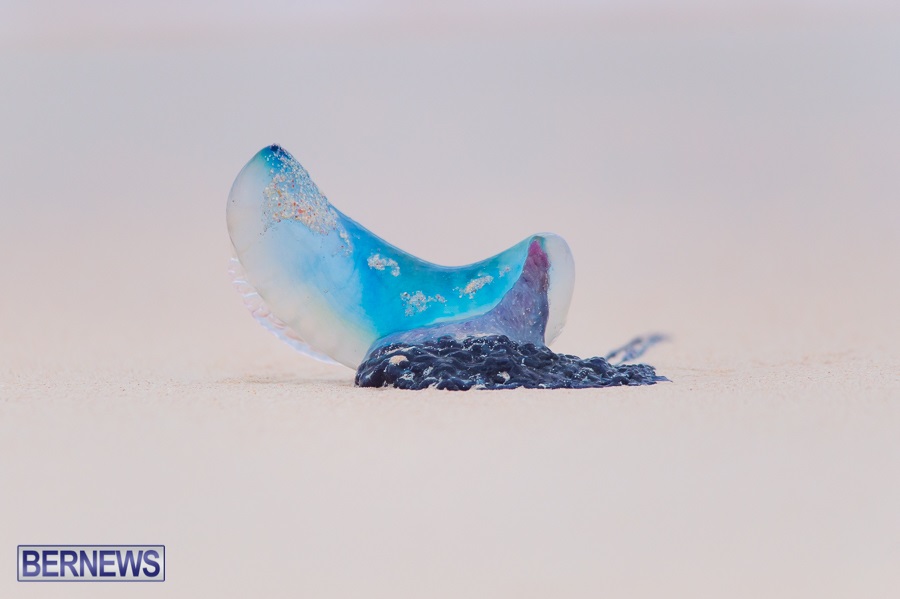First Responders Trained To Treat Jellyfish Stings
A local expert in treating jellyfish stings, and in particular those of the Portuguese-Man-of-War variety, provided training to some first responders this month.
Bermuda Hospitals Board’s [BHB] Dr David Wakely trained more than 20 Marine Police officers and Royal Bermuda Regiment soldiers in the best way to treat burns and stings caused by Portuguese-Man-of-War.
A BHB Emergency Medicine and Hyperbaric and Diving Medicine physician, Dr Wakely sees many cases of jellyfish stings particularly in the spring and summer.
“In readiness for the surge in water activities the Bermuda Police Service requested the training to increase the awareness of marine first aid. They invited the members of the Royal Bermuda Regiment as well as staff from Medical House,” BHB said.
“The Medical House staff were present to learn what products the Emergency Department recommends victims use to treat their stings.
According to Dr. Wakely most victims do not have to attend the hospital for treatment. Those who know what to do can treat themselves or others who know can help victims.
He also advised that hospital treatment should be considered in the case of toddlers, the elderly, those with serious medical conditions, those who have been stung over large areas of their bodies or those who have been stung in sensitive areas like the face, mouth and groin.
BHB said: What to do in the case of a Portugueses Man-of-War sting
1] Safety first
- Use gloves
- Keep bystanders back
- Identify the main sail / body parts of the animal
- Look for trailing stinger / tentacles
2] Remove the tentacles
- Remove main body of the animal from victim if still attached
- Wash affected area with seawater, to flush away any tentacles
- Cover area in shaving foam [stingers are now in the foam]
- Scrape foam off with blunt spatula
3] Inactivate the stingers
- Soak the area in vinegar for 5 – 10 minutes
- Leave soaking for 5-10 minutes
4] Treat the pain
- Hot packs on affected area
- Consider putting victim in showers and running shower hot as tolerable
- Keep hot pack / shower on area for 30minutes





Oh please.
20 police officers et al.
Who comes up with this S^%$.
And Marine?
Me? I use pepper spray.
RKelly has also been trained in treating these type of stings
Thanks. Always good to know what to do.
Why is it that you’re treating the regiment and police when the people who see it on a more regular basis are the fire service and kemh ambulance staff? Wouldn’t you think it’ll be better to give them more training and a better understanding about how to treat that kind of emergency then to waste your time with the regiment or police???
Most EMT’s within the fire service and KEMH are already familiar with treatment and have been responding to these emergencies for many years. I’m also pretty sure that lifeguards are familiar with the stated methods as well. Police and regiment officers now have a high presence on the water and are now more likely to encounter victims
What do we do if we get stung by a politician? Last time I got stung de pain lasted 13 years!
Thanks for the tips. Just a question, because of our water shortage, if we don’t use the shower, the packs are a good substitute?